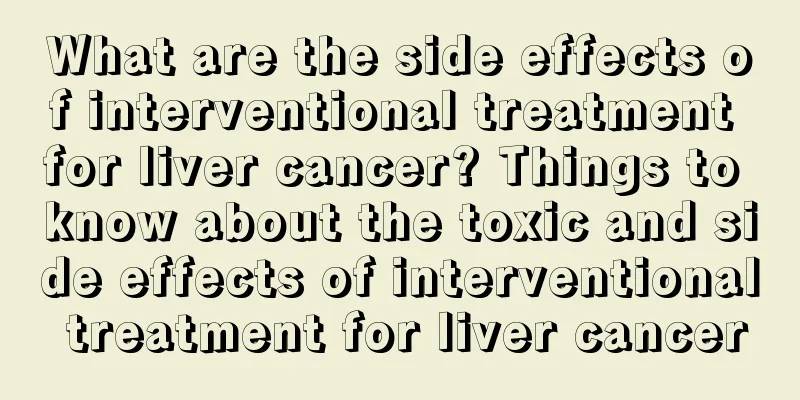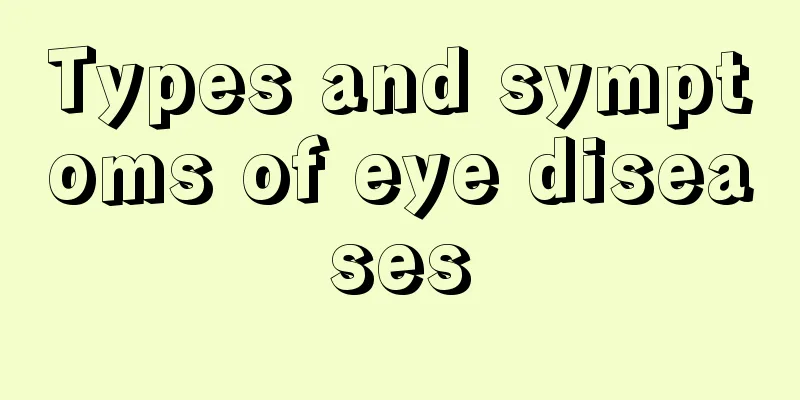What are the side effects of interventional treatment for liver cancer? Things to know about the toxic and side effects of interventional treatment for liver cancer

|
The side effects of interventional therapy are less than those of systemic chemotherapy, but it also has some special side effects. The infusion chemotherapy drugs used in interventional therapy can produce some toxic side effects, such as nausea, vomiting, decreased blood levels, and bone marrow suppression. The toxic side effects that are particularly relevant to interventional therapy are mainly caused by embolism, which manifests as post-embolization syndrome: including nausea, vomiting, fever, pain, etc. Its nausea and vomiting are also related to chemotherapy drugs. However, studies have shown that after embolization, the patient's nausea and vomiting may be aggravated, and embolization can also cause fever and pain. Fever and pain occur because the tumor has abundant blood supply arteries. The embolic agent will block and occlude the tumor's blood supply arteries. These acute ischemia of the tumor and the necrosis caused by acute ischemia after embolization will also cause pain and fever in the patient. This situation will last for about three to five days. Can most patients tolerate it? Most patients can tolerate it. The fever is usually around 38 degrees. A few patients will have a high fever, but most patients have a fever between 38 and 39 degrees. After general treatment, the patient will recover quickly. |
Recommend
What to do if women are afraid of cold and easily catch cold
As we all know, fat not only serves as energy in ...
Can thyroid cancer be prevented
Can thyroid cancer be prevented? In life, thyroid...
Ointment for paronychia
Most people will refuse surgical treatment when t...
Does eating lemon cause internal heat?
Lemon is a very common fruit in our lives. Most p...
Taboos of tea oil
I believe many people have eaten tea oil, but the...
What should I pay attention to after hernia surgery?
Hernia is a disease that endangers any health. On...
9-month-old baby refuses to eat complementary food_9-month-old baby refuses to eat complementary food
Many nine-month-old babies become naughty. They m...
In the early stages of cervical cancer, vaginal bleeding usually occurs first.
In the early stages of cervical cancer, vaginal b...
Standards for pulse rate and heart rate
We all know that our bodies are covered by variou...
The difference between Juniperus chinensis and Thuja orientalis
Plum, orchid, bamboo and chrysanthemum are common...
If you have itching in two places, should you be careful of liver cancer? Know the two major symptoms of liver cancer as early as possible
The liver is the most important of the internal o...
Factors causing stress-induced gastric ulcer
Nowadays, there are many kinds of diseases, so pe...
Can juice be heated?
Fruit juice is a kind of drink that many people l...
What plants can purify the air
Purifying the air is still very useful, and many ...
How much does the 4-valent cervical cancer vaccine cost
The price of the 4-valent cervical cancer vaccine...









